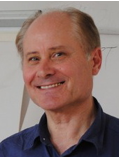
Archive Copy.
Plant Teacher Communities of Practice – Harvest Personal Satisfaction and Professional Growth
Communities of Practice form the foundation of teacher professional development. Communities of Practice (CoPs) are spaces where people in a trade or profession can “talk shop.” In some fields, CoPs happen naturally on the job. However, teachers do not practice their craft alongside other teachers; they practice it in a room full of students. Teachers must consciously build CoPs.
Teachers who participate in Communities of Practice rarely experience burnout or fall into ruts. They know their strengths and don’t need to hide from their shortcomings. They lack resources less often because they are surrounded by “solutions.” They are confident and can count on their peers. CoPs may be formal or informal and participants may change, but they are places where teachers can freely explore teaching practice, share safely, and feel empowered and energized.
The sessions will examine the essential characteristics of teacher communities of practices, share common teacher CoP interactions that are commonly productive, provide tips for creating maintaining, explore ways to manage the changes that occur when CoPs transition from informal to formal associations, and look at ways CoPs can effectively bridge cultural differences.
Biographical Sketch
Brock Brady is the Programming and Training Education Specialist for the U.S. Peace Corps, a volunteer development agency. He recently completed three years as President-Elect, President, and Past President of the TESOL International Association. Before coming to Peace Corps, Brady served as Coordinator then Co-Director of the American University TESOL Program in Washington, D.C. for 12 years. Prior to teaching at American University, Brady directed English Language Programs for the State Department in Burkina Faso and Benin, lectured in Korea at Pohang University of Science and Technology (POSTECH) for two years, served as a Fulbright Scholar in France, and as a Peace Corps Volunteer in Togo, W. Africa. He matriculated at Reed College and Portland State University in Oregon (USA).
Brady’s research interests include English language planning and policy, program and course design, pronunciation, and strategies for building teacher communities of practice. Currently, he is a on the Editorial Board of Asia TEFL. He has also taught English or engaged in educational consulting in Angola, Australia, Brazil, China, Colombia, Costa Rica, Côte d’Ivoire, Egypt, France, Gambia, Guatemala, Israel, Mali, Mexico, Moldova, Panama, the Philippines, Portugal, Sierra Leone, Singapore, South Africa, and Spain.
20-20 Session
Demystifying Critical Thinking
Critical thinking skills, while of interest for decades, are much in vogue today as English has been elevated to a 21st Century Workplace Skill that gives both nations and citizen access to the global economy. However, this bundling of English and Critical Thinking Skills sometimes gives the impression that one can only think critically through English. Another challenge with this present infatuation for critical thinking is that too often methods of teaching critical thinking, not wishing to be accused of a lack of rigor, end up being so intimidating (if not convoluted as well) that teachers (and students!) think that critical thinking is beyond them and avoid the topic all together. This presentation is a humorous look at critical thinking which provides teachers with a commonsense approach to critical thinking that easy to understand, easy to implement, and which avoids the over-elaborate, cumbersome language that characterizes too many approaches to critical thinking. Practical, manageable strategies for teaching critical thinking will be provided along with classroom materials and activities that teachers can use immediately.


